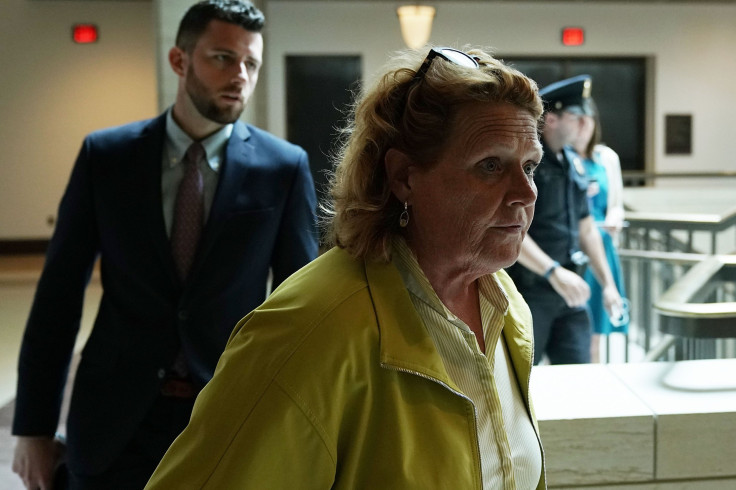Banks Back Democrats In Bid To Rebuild Bipartisan Support

WASHINGTON - Banks are going to bat for Democrats in the U.S. November midterm congressional elections as part of an ambitious strategy to rebuild the bipartisan support they enjoyed before the 2007-2009 financial crisis.
Commercial banks have so far donated a total of $2.5 million to U.S. Senate Democrats in the 2018 election cycle, the largest sum since 2008, according to data from the Center for Responsive Politics.
The backing of Democrats marks a shift for banks, which have kept a low profile in Washington since the crisis. Democrats had all but abandoned the financial industry in the aftermath, wary of appearing to do favors for Wall Street.
But some moderate Senate Democrats in May backed the first easing of financial rules since the crisis and now are seeing a boost to their campaign coffers as the sector seeks to broaden its support on Capitol Hill.
Of the 20 Senate candidates receiving the most money from banks during the 2018 cycle, 15 are Democrats, according to the Center for Responsive Politics data which tracks donations made by political action committees and individuals. When those seats were last up for election in 2012, only seven Democrats were in the top 20.
Senators Heidi Heitkamp, Jon Tester and Joe Donnelly, moderates who helped pushed through the May legislation easing rules on community banks introduced by the 2010 Dodd Frank law, are the top three recipients, the data shows.
Representatives for Senators Tester, Heitkamp and Donnelly did not respond to requests for comment.
All three senators are locked in tight contests on Nov. 6. Analysts predict Democrats are likely to gain control of the House of Representatives but have a more narrow path to taking back the Senate.
The other 12 Senate Democrats, some of whom also voted for the bank rule-easing bill, are also moderates. The exception is Ohio Senator Sherrod Brown, whose position as ranking member on the Senate Banking Committee makes him an important stakeholder for the industry.
The sector hopes boosting moderates will constrain the big bank-bashing wing of the Democratic Party, including Senator Elizabeth Warren, a likely presidential candidate in 2020, and Representative Maxine Waters, who is poised to chair the committee overseeing banks if Democrats win the House.
Rebuilding broad bipartisan support will be challenging, consumer advocates say. Big banks continue to be a sensitive issue within the Democratic Party, which was bitterly divided over the May legislation, and among voters.
STRATEGIC MOVE
The midterm elections mark the first time since 2012 that the banking industry has given more money to Senate Democrats than Republicans, according to center’s data, which is based on federal records released on Sept. 24.
The sector has dished out $2.5 million to Senate Democrats and $1.8 million to Republicans this election cycle. By contrast, the industry gave $1.6 million to Senate Democrats and $5.2 million to Senate Republicans during the 2016 elections.
The American Bankers Association, the top Washington bank lobby group, has contributed $83,000 to Senate Democratic candidates this cycle and is leading the industry’s push to regain bipartisan support, said its CEO Rob Nichols.
Nichols, whose association has for the first time bought advertisements for 12 midterm candidates, including four Democrats, called enhancing the industry’s political capability “strategically important.”
“This is rigorously bipartisan: if you support us, we want to support you,” he said. “This is not about playing party favorites. For decades, banking policy was bipartisan up until Dodd Frank, and we’re excited to see a return to this bipartisanship.”
Industry officials hope the senators they support will back further legislation easing capital markets rules drawn up in a package that passed the House in July but has yet to pass the Senate.
“Democrats being supported by the banks are generally viewed as moderate elements in a Senate that is being steadily stretched to its extreme ideologically,” said Isaac Boltansky, director of policy research at Washington-based Compass Point Research & Trading.
He added that the industry is also anxious to ensure these senators are around to oversee a swift implementation of May’s new laws by the banking regulators.
Two-thirds of registered voters are more likely to vote for a candidate who supports regulating Wall Street and big banks when they talk about the economy, according to a September survey by The Harris Poll on behalf of Better Markets, which lobbies for tighter industry regulation.
Ken Bentsen, the chief executive of bank lobby group the Securities Industry and Financial Markets Association (SIFMA) and a former Texas congressman, said it was unfortunate that the industry continued, in his view, to be seen “as a political piñata.”
But he said Democratic views on the banking industry were not monolithic, and he saw opportunities to work with members of the party.
“We’ll address it, however it turns out,” he said of next month’s election.
Reuters
Reporting by Michelle Price; additional reporting by Pete Schroeder; Editing by Colleen Jenkins
© Copyright Thomson Reuters 2024. All rights reserved.





















